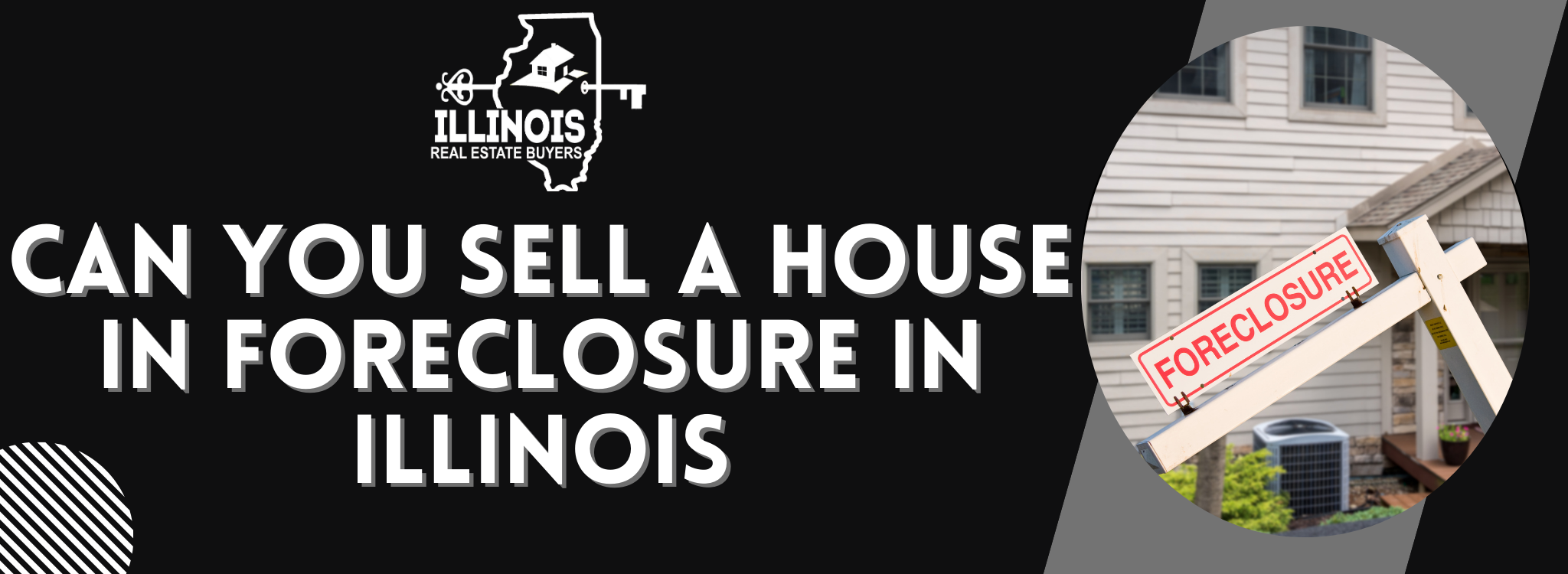
Protecting Your Home From Foreclosure
What Early Steps Can You Take To Prevent Foreclosure?
When foreclosure feels close, stand firm and act fast. Take a moment to assess your budget and mortgage. Follow these next steps.
Contact Your Lender: If your monthly payment looms too large, don’t wait. Reach out to your mortgage company and explain. The sooner you speak, the sooner they can explore a temporary plan.
Financial Planning: Map out every dollar. Rank your expenses, and make a plan where your mortgage stays first.
Understand Illinois Law: Learn about Illinois foreclosure laws and your rights within them. Armed with this knowledge, you can move intentionally and avoid misunderstandings later.
Shaping your future still starts today; these steps could truly hold the door open to the home you cherish.
How To Communicate Effectively With Your Lender During Foreclosure Threats

When foreclosure feels real, the right conversations can shed a path. Use these strategies to strengthen every call.
Be Prepared: Pull together account statements, past letters, and income proofs. Neat, complete files get you to answers sooner.
Negotiate: In the conversation, inquire about mortgage modification, forbearance, or other programs that fit your budget. Understand timetables and terms.
Stay Engaged: The Illinois foreclosure process moves step by step. Communicate at every jurisdiction phase. Show your lender you are still invested; the agility in your care can soften the process altogether.
When the worry heightens, breathe and open the line. Consistent, honest dialogue transforms potential loss into a still-possible path forward.
What Are The Best Financial Strategies To Keep Your Home?
Using smart financial strategies can help save your home. Think about these options:
Loan Modification: Work with your lender to change your loan terms. This might lower monthly payments.
Refinancing Options: Look into getting a new and better mortgage deal.
Budgeting: Create a strict budget to put mortgage payments first. Illinois homeowner assistance programs may also offer help.
These methods can give stability and help you keep your home.
Exploring Legal Options In Foreclosure Situations
How Can Legal Counsel Aid In Foreclosure Defense?
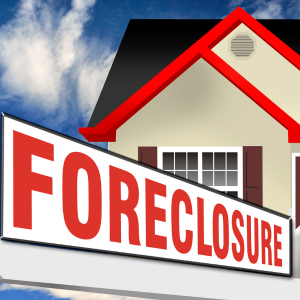
Legal counsel is vital for foreclosure defense. Here’s how they help:
Protect Your Assets: An Illinois foreclosure attorney can safeguard your rights and assets during the process.
Seek Advice: Professional advice clarifies your legal situation and defense strategies.
Defense Strategies: Lawyers create custom strategies to fight foreclosure actions.
Getting legal help early improves your odds in foreclosure cases.
Understanding The Role Of Illinois Foreclosure Laws In Protecting Your Rights
Illinois foreclosure laws provide specific homeowner protections. Know these details:
Judicial Foreclosure: Understand foreclosures must go to court, giving you a chance to defend yourself.
Homeowner Rights: Understanding your homeowner rights is crucial to securing legal safeguards under Illinois law.
Familiarity with these statutes strengthens your ability to protect your position.
What Are The Common Legal Missteps To Avoid During A Foreclosure?
Avoid common legal mistakes during foreclosure. Stay aware of these:
Timely Response: Always meet deadlines for legal notices and court filings.
Compliance: Adhere to every step in Illinois foreclosure procedures, no exceptions.
By respecting these guidelines, you may ease the journey through the legal maze.
Selling A House In Pre-Foreclosure
Marketing a property in Illinois pre-foreclosure is tested but attainable. A grasp of the local housing climate and the foreclosure pathway is essential. Armed with that, you will choose the soundest course.
When Is The Right Time To Sell A Home In Pre-Foreclosure?
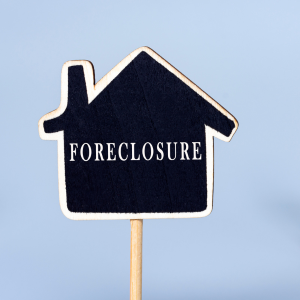
Timing is everything when selling a home in pre-foreclosure. Keep these points in mind:
Market Conditions: Review zoning updates and current sales to gauge an optimal window.
Financial Situation: Assess debts and current standing to determine whether a sale at present can lighten your financial burden.
Illinois Foreclosure Timeline: Acquire an Illinois foreclosure timeline so you can execute an exit strategy before the judge’s gavel.
By understanding these points, you can stop foreclosure in Illinois and avoid auctioning your home.
How Does The Pre-Foreclosure Sale Process Work In Illinois?
To manage a pre-foreclosure sale in the state, follow a simple checklist:
- Know Your Rights: Familiarize yourself with Illinois’s rights under both judicial and non-judicial foreclosure events.
- Follow Legal Steps: Have a foreclosure attorney outline each document and deadline you’ll face.
- Complete the Sale: Team up with a real estate pro who closes sales like these daily, keeping trouble from the court house door.
A firm grasp of the Illinois timeline and requirements means you’ll control the clock, not the lender.
Is It Possible To Sell A Foreclosed Home Quickly?
You can sell a foreclosed home quickly in Illinois by doing these things:
Cash Buyers: Market your property primarily to buyers with cash ready, since vacant walls and repairs scare off most bank lenders.
Real Estate Investors: Reach out to buyer networks and house-flipping local pros who thrive on court house auction streams.
Quick Sale Methods: Sign up with a title and closing company specializing in fast turn rates and lien wipes, and set a 14-day ERC close.
Fast sales tackle mortgage balance and associated fees, buying you a breather.
Negotiating With Potential Buyers
When buyers eye a property with leaky guts and no appliances, the way you negotiate makes a lasting difference. Anticipate repairs buyers will demand and openly quote the estimated cost, showing the house’s true savings. Instead of a concession, offer a pain-free credit to closing, and you’ll preserve a wider equity window.
What Are Effective Negotiation Tactics For Selling A Distressed Property?
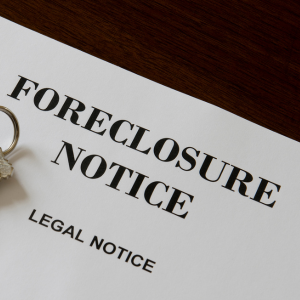
Quick gains that bring serious bidders your way:
Demonstrate your property’s recent market feel.
Toss in something extra: pay part of their closing cost, for instance.
Chat first with a foreclosure expert in Illinois.
Apply these simple steps, and you’re a move closer to a successful Illinois bank listing.
How Can You Present A Foreclosed Home To Potential Buyers?
Put your best foot forward with a distressed listing:
Staging: Stage the property to make every square foot pop.
Real Estate Professionals: Partner with agents plugged into Illinois foreclosure trends.
Improved Home Value:Swap out carpet stains, tighten loose fixtures, paint in safe colors—little lifts pay off.
Nail these areas, and you’ll pull in serious shoppers.
Are There Any Incentives For Buyers In Foreclosure Sales?
Sweeteners that hook buyers:
Closing Costs: Cover part of closing fees and trim buyers’ upfront pain.
Market Trends: Show them how your listing fits today’s market push.
HUD Guidance: Stick to the Illinois script and follow HUD’s foreclosure notes.
Trust these extras to build buzz and bring a buyer sooner.
In short, Illinois sellers tackle and trim losses with a step-by-step focus when offloading a home headed toward foreclosure.
Assessing The Value Of A Foreclosed Property

When shopping for a home in foreclosure, finding its true market value is non-negotiable. The sale process is seldom straightforward and can lead to rapid devaluation if the right figures aren’t applied. Pay attention to the pointers that follow:
Market Value: Examine the recent sales of similar houses in the area. These “sold” signals help you gauge the likely value of the distressed home you’re eyeing.
Property Marketability: Quantify how sellable the property is. The neighborhood, proximity to services, and the number of potential buyers who fit the property are critical variables that will determine how quickly the home can be marketed again.
Impact of Foreclosure: Assess how the current foreclosure status sways interest. Many such homes have deterioration, which can be a deterrent or, conversely, an opportunity to create equity through targeted updates.
Renovations and Value Increase: Detail the property’s repair needs. Smart, targeted renovations can justify an asking price above the foreclosure discount, especially if the buyer pool views the house as a fixer-upper.
Illinois Real Estate Trends: Follow regular updates in state housing reports. Cycles in interest rates, new construction, or job shifts tell you when demand might strengthen or soften, and those forces will be reflected in asking prices.
These analyses ground prudent investment in reputational and technical market signals.
Financing Challenges And Solutions
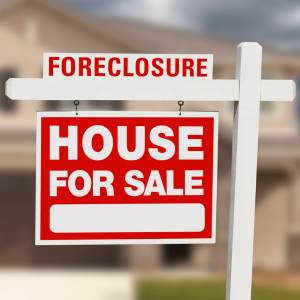
Buying a foreclosure can be tricky, yet there are targeted financing routes to ease the journey.
Financing Options: Weigh the full menu of mortgages, from mainstream products to options custom-crafted for distressed homes.
Mortgage Approval Process: Lenders usually up the vetting bar for properties marked as foreclosures. Clarify what documents you need, stress-test your budget, and check that your credit, debt, and income ratios paint the right picture.
Special Loans and Programs: Dig into purpose-built options such as the FHA 203(k). These programs combine the purchase and repair budget into one, perfect for those who see potential and are ready to swing the sledge.
Cash Buyers Advantage: Cash offers frequently slip through the appraisal and underwriting bottleneck, which can146 slot considerable speed and negotiating leverage. Sellers like certainty, so a solid all-cash offer is a safe bet.
Loan Modification and Assistance Programs: For a current homeowner staring down foreclosure, Illinois offers a raft of loan-mod programs. A favorable restructuring can save you, and may indirectly deflate the pool of homes in foreclosure, making the remaining inventory less congested.
Credit Impact: A looming or completed foreclosure can put a red mark on your score, which in turn spooks lenders. Keeping credit feeds, like revolving debt, in check tilts the odds in your favor when it is time to finance again.
Mapping financing routes involves running a complete checklist of options, nurturing your credit, and staying flexible. You’ll get to the closing table one way or the other, as long as you keep the destination in focus.
Impact Of Foreclosure On Credit And Future Purchases
Understanding foreclosure’s effect on your finances is important, especially in Illinois. It can greatly impact your credit score and influence future purchases, like buying a new home after a foreclosure.
How Does Foreclosure Affect Your Credit Score In Illinois?
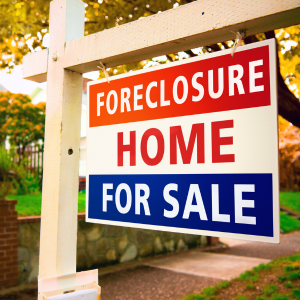
In Illinois, a foreclosure can seriously lower your credit score. The financial hit shows up on your credit report, with scores dropping by 100 to 160 points, depending on your previous credit status. A foreclosure stays on your report for seven years, making getting loans or new credit lines harder.
What Steps Can You Take To Rebuild Credit After Foreclosure?
Rebuilding credit after a foreclosure is possible:
Credit Repair: Get your credit report and fix any mistakes you find.
Financial Recovery: Make and stick to a budget to avoid more debt.
Improve Credit: Use small loans or secured credit cards to raise your credit score slowly.
Responsible Borrowing: Pay bills on time and keep your credit usage low.
Credit Counseling: Get professional help to guide your financial recovery.
Is It Possible To Buy A New Home After Experiencing Foreclosure?
Buying a home after foreclosure is tough, but you can do it:
Mortgage Approval: Lenders want to see better credit scores and stable income.
Financial Readiness: Save a big down payment and reduce debt to prepare.
Housing Market Awareness: Know the market conditions to find the right property.
Credit Improvement: Keep working on your credit to increase mortgage approval chances.
Understanding Foreclosure Alternatives
Looking into foreclosure alternatives in Illinois can help save your credit and financial future.
What Alternatives Exist To Avoid Foreclosure In Illinois?
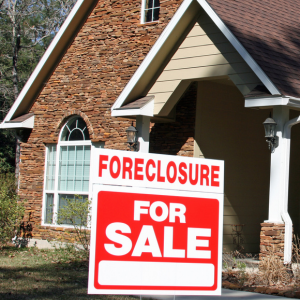
You have several options to avoid foreclosure in Illinois:
Loan Modification: Change your mortgage terms to make payments easier.
Short Sale: Sell your home for less than you owe to evade foreclosure.
Illinois Homeowner Assistance: Use state programs that offer financial support.
Housing Counseling: Get advice from experts to explore other options and plans.
Can Loan Modification Help Save Your Home From Foreclosure?
Loan modification can prevent foreclosure. By negotiating with your lender, you can change your mortgage terms. This might include lowering monthly payments, extending the loan term, or reducing interest rates, which makes it easier to handle your mortgage with Illinois Mortgage Solutions.
How Do Short Sales Compare To Foreclosure As An Option?
A short sale is an alternative to foreclosure with different impacts:
Property Sale Implications: Avoid the heavy credit damage of foreclosure.
Financial Impact: A short sale affects credit but less harshly.
Real Estate Market Relevance: Short sales may move faster in a strong market.
Seller Options: Provides more control over the sale process compared to foreclosure.
To handle these challenges, understand your choices and seek guidance when needed. Contact local real estate professionals for tailored advice.
Working With Real Estate Professionals
What Role Do Real Estate Professionals Play In Selling A Foreclosed Home?
Real estate professionals are very important when selling a foreclosed home, especially in Illinois. They know how to handle the foreclosure process and understand current market conditions. Experts manage property sales, talk to potential buyers, and make sure all legal steps are followed. Their Illinois real estate market knowledge helps them set the home’s price right and attract serious buyers.
How To Choose The Right Real Estate Professional For A Foreclosure Sale
Finding the right real estate professional is key to a successful foreclosure sale in Illinois. When choosing an expert:
Expert Qualifications: Make sure they have the right licenses and certifications.
Track Record: Look at their experience with selling foreclosures.
Client Reviews: Read past clients’ opinions to see their satisfaction.
Negotiation Skills: Check if they can negotiate offers well.
Local Market Knowledge: They should know the Illinois market well.
What Should You Expect From A Realtor In A Foreclosure Transaction?
In a foreclosure transaction, expect your realtor to guide you. They will estimate the property’s value, plan marketing strategies, and manage offers. They also take charge of negotiations and ensure all legal requirements and paperwork are in order. They aim to make the process smooth and get the best result possible.
Preparing For The Foreclosure Process
How To Organize Your Documents For A Foreclosure Sale
Having your documents organized is crucial for a foreclosure sale in Illinois. You will need:
Financial Records: Bank statements, credit reports, and tax returns.
Mortgage Statements: Information on your loan’s current status.
Legal Documents: Any court filings or notices related to the house.
Proof of Ownership: Deeds and titles that show you own the property.
Property Assessment: Recent appraisals or valuations of the home.
What Should Sellers Know About The Illinois Foreclosure Timeline?
Sellers should understand the Illinois foreclosure timeline to avoid any surprises. Important things to know include:
Steps: Starting the process, auctioning, and what happens after the sale.
Deadlines: Key dates you need to act by.
Legal Proceedings: What the standard procedures and requirements are.
Notifications: Types of notices you’ll get and how to respond.
Sale Date and Redemption Period: The timeline for the auction and any chances to reclaim the property.
Judicial Process: How the court is involved.
Homeowner Rights: Knowing your rights throughout the process.
Are There Homeowner Assistance Programs Available In Illinois?
Yes, Illinois offers several homeowner assistance programs to help prevent foreclosure:
Financial Aid: Options to ease financial pressure.
Foreclosure Prevention: Programs aimed at stopping foreclosure through support and counseling.
Loan Modification: Changes to existing loan terms to make payments easier.
State Programs: Specific programs provided by Illinois.
Eligibility Criteria: What you need to qualify.
Application Process: Steps to apply for assistance.
Support Resources: Access to housing counseling and other help available.
FAQs:
Can you sell a property during foreclosure in Illinois?
Yes, you can sell your home during foreclosure in Illinois. You need to find a buyer before the foreclosure auction. This can help you avoid financial problems like deficiency judgments. It’s good to ask an Illinois foreclosure attorney for guidance and explore options such as loan modifications or a short sale.
What is a deed instead of foreclosure, and is it applicable in Illinois?
A deed instead of foreclosure is when a homeowner gives the property’s deed to the lender to avoid foreclosure. This option is available in Illinois. It can be a good choice if you can’t keep up with mortgage payments. However, it may affect your credit score, so negotiating with the lender is essential.
How can foreclosure impact tenants in Illinois?
In Illinois, tenants living in a foreclosed property have rights that protect them from being kicked out immediately. The federal Protecting Tenants at Foreclosure Act (PTFA) allows tenants to stay until their lease ends or get a 90-day notice if renting month-to-month. Understanding these rights is important for tenants facing foreclosure.
What are Illinois foreclosure mediation programs, and how do they work?
Illinois foreclosure mediation programs let homeowners and lenders discuss ways to avoid foreclosure. During mediation, borrowers can explore loan modifications, repayment plans, or refinancing. These programs aim to find solutions that work for both sides and often include neutral mediators to facilitate the discussions.
What legal steps should I take if I’m facing foreclosure in Illinois?
If you’re facing foreclosure, act quickly. Start by contacting an Illinois foreclosure attorney for legal advice. They can help you understand your rights and negotiate with lenders. You might also want to use foreclosure counseling services for tips on managing your finances.
Are there tax implications after selling a foreclosure property in Illinois?
Yes, selling a property during or after foreclosure in Illinois can have tax consequences. If a lender forgives part of your mortgage debt, it might be taxable income. It’s essential to consult a tax advisor or attorney to understand your obligations and explore options like insolvency to reduce taxes.
How does an automatic stay work in the context of Illinois foreclosure?
An automatic stay happens when you file for bankruptcy, temporarily stopping foreclosure proceedings. This pause gives homeowners time to negotiate with lenders or reorganize debts in Illinois. It’s an important tool, but you should get legal advice to ensure it fits your long-term financial plans.
What alternatives to foreclosure exist in Illinois?
Several options can help you avoid foreclosure in Illinois. You can try to negotiate a loan modification, pursue a short sale, or consider a deed in place of foreclosure. Each option has pros and cons, so it’s crucial to consult professionals who can guide you through these choices.
Key Insights
• Yes, you can sell your home in Illinois while it’s in foreclosure. Having a plan is important, as selling a home in foreclosure takes time.
• We provide guidance on Illinois mortgage default solutions, like loan modification and the Illinois foreclosure mediation program, to help you avoid foreclosure.
• If you can’t keep up with payments, consider options like foreclosure or a short sale of an Illinois deed. These can let you leave the property without more financial problems.
• It’s smart to consult an Illinois foreclosure attorney on issues such as Illinois deficiency judgments after foreclosure and borrower foreclosure rights.
• Stay informed about the Illinois tax lien foreclosure process. Understand judicial sales, deficiency, and redemption periods so you know how to redeem your property.
• If you’ve been notified of foreclosure, explore options like Illinois HUD foreclosure guidance or bankruptcy for debt relief.
• We can help find a buyer or look into seller financing, making your transition smoother, even if you’ve missed payments.
• Contact us today to file the necessary documents or make an appointment. Don’t hesitate to call us for assistance with facing foreclosure.
• Be ready for possible eviction by learning what happens after foreclosure and knowing your rights and obligations.
• We buy houses and offer cash solutions. Call us to discuss how we can help resolve your foreclosure situation quickly and effectively.
This information applies to Illinois and its cities, including Chicago, Fox Lake, and Hickory Hills. For assistance or questions, please call us at (773) 305-6373. You can also visit our website at Illinois Real Estate Buyers for more details.


